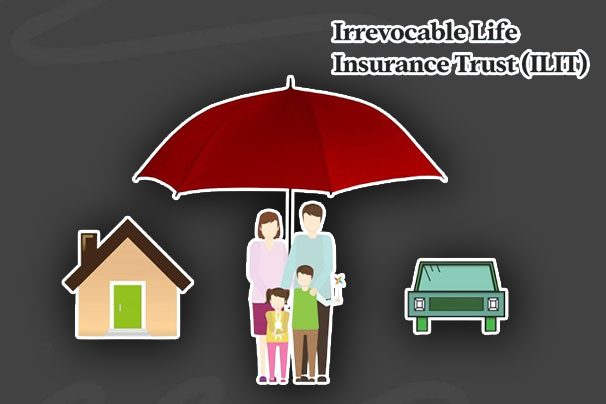Best Life Insurance For Seniors Over 70 – Finding the right life insurance becomes increasingly important as you age, especially after 70. At this stage, many seniors are focused on ensuring their loved ones are financially secure, covering final expenses, or leaving a meaningful legacy.

However, getting the best life insurance can be challenging, with various options and factors to consider, such as affordability, coverage needs, and eligibility requirements.
But by understanding your priorities and the best policies available, you can make an informed decision that provides lasting peace of mind for you and your family, especially when you’re gone.
Do Seniors Over 70 Need Life Insurance?
Yes, seniors over 70 may still need life insurance, depending on their situation. Moreover, life insurance can help cover final expenses like funeral costs, pay off debts, or leave money for loved ones. It can also be a way to provide financial support for a spouse or family member.
If you don’t have enough savings to handle these expenses, life insurance can be a smart choice. However, if you already have enough savings or don’t need to leave money for anyone, you might not need it. It all depends on your personal needs and financial goals.
Can I Still Get Life Insurance at 70?
Yes, you can still get life insurance at 70. Many insurance companies offer policies for seniors, but the options might be different from those available to younger people. The cost of life insurance is higher at this age, and some policies may require a health check, while others don’t.
So, you can choose from types like term life, whole life, or final expense insurance, depending on your needs.
However, it’s important to compare options to find a policy that fits your budget and provides the coverage you need.
Best Life Insurance for Seniors Over 70
If you’re over 70 and looking for life insurance, there are several options to consider. Each type of policy is designed to meet specific needs, whether it’s providing financial support for loved ones, covering end-of-life costs, or leaving a legacy.
Here are some of the main types of life insurance policies that seniors over 70 should explore:
Term Life Insurance
Term life insurance is a popular choice for seniors in their 70s. This type of policy offers coverage for a set period, like 10 or 15 years. However, as you age, the term length options become shorter.
The premiums for term life insurance are generally lower compared to other policies, making it an affordable option.
If the term ends and you’re still alive, you can usually renew the policy or get a new one, although the premiums will likely increase.
Whole Life Insurance
Unlike term life insurance, whole life insurance provides coverage for your entire life. It also builds cash value over time, which you can use for various financial needs.
For example, you can borrow money against the cash value or withdraw it if needed. The cash value grows tax-deferred, making this a good option for seniors who want lifelong coverage and an added financial safety net.
Guaranteed Issue Life Insurance
This type of life insurance is ideal for seniors who have health problems and may not qualify for traditional policies. Guaranteed issue policies don’t require a medical exam, and approval is usually quick and easy.
However, these policies usually come with higher premiums and lower death benefits. They’re best suited for covering small expenses or leaving a modest amount for loved ones.
Final Expense Insurance
Final expense insurance is designed to cover end-of-life costs, such as funeral expenses and medical bills. It’s a straightforward policy that doesn’t require a medical exam, which makes it a good fit for seniors who want an easy application process.
The premiums are affordable, but the coverage amount is usually lower compared to other types of life insurance.
This policy is perfect for seniors who want to ensure their loved ones won’t have to bear the financial burden of funeral costs.
When deciding on a life insurance policy, think about your needs and budget. If you want temporary coverage, term life insurance might be the best option.
For lifelong protection, whole life insurance is a better fit. If health issues are a concern, guaranteed issue or final expense insurance can provide peace of mind.
Best Life Insurance Companies For Seniors Over 70
Seniors over 70 need insurers that offer affordable rates, flexible options, and reliable coverage. Here are some of the best life insurance companies for seniors over 70:
- Protective
- Pacific Life.
- Equitable
- Corebridge
- State Farm
- Mutual of Omaha
- Globe Life
- Colonial Penn
These are some of the best companies offering life insurance for seniors over 70. So, before choosing, ensure you take your time to compare companies. This can help you find a life insurance provider that meets your needs and gives you peace of mind in your later years.
How Much Does Life Insurance for Seniors Cost?
The cost of life insurance for seniors depends on factors like age, health, lifestyle, and the type of policy you choose.
For healthy, nonsmoking 70-year-olds, a 10-year term life insurance policy with $500,000 coverage might cost around $351 per month for men and $233 per month for women.
Whole life insurance generally costs more than term life insurance due to its lifelong coverage and cash value benefits.
Why Is Life Insurance More Expensive for Seniors?
Life insurance becomes more expensive with age because insurers see older applicants as at higher risk. Seniors are more likely to have health issues or pass away during the policy term, which increases the chance that the insurer will have to pay a death benefit.
To account for this higher risk, insurers charge higher premiums. This is why older adults often pay more for life insurance than younger people.
Bottom Line
Life insurance for seniors over 70 is an important tool to provide financial security, cover final expenses, or leave a legacy for loved ones.
While premiums are higher at this age, options like term life, whole life, guaranteed issue, and final expense insurance ensure there’s a suitable policy for different needs and budgets.








